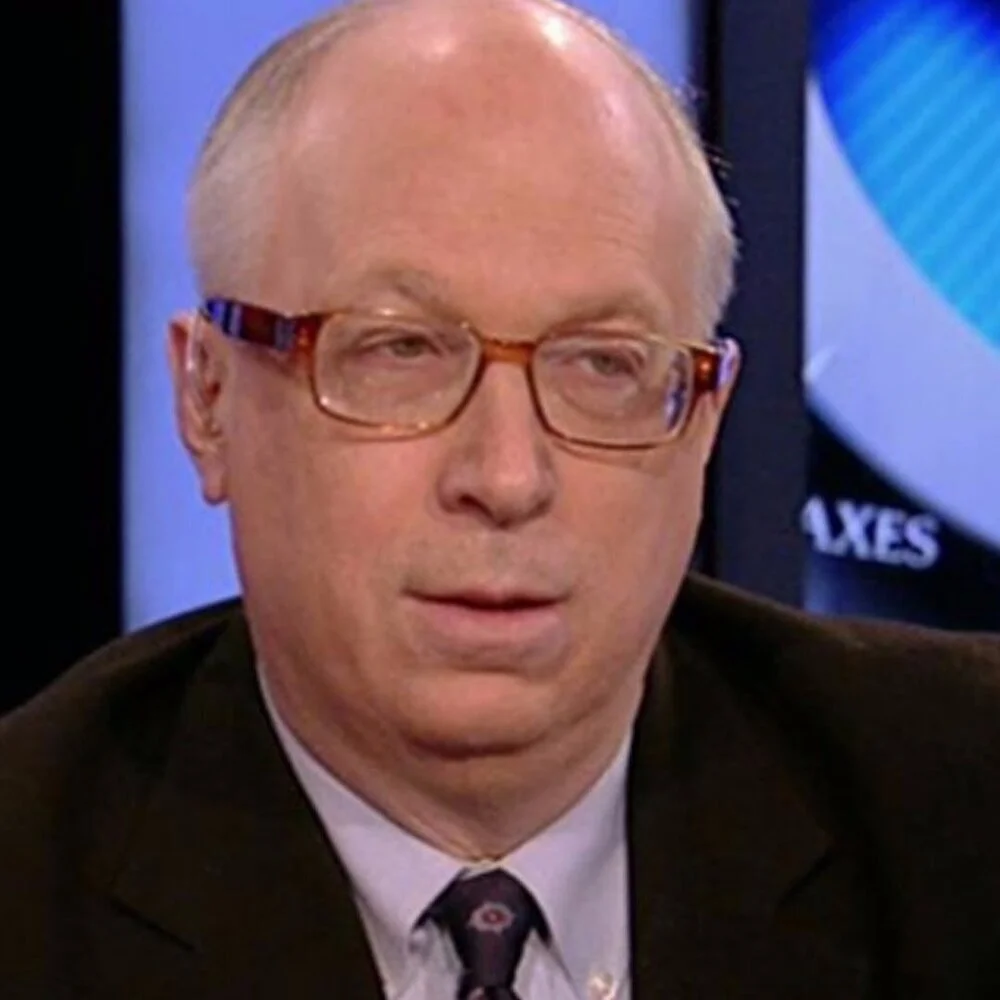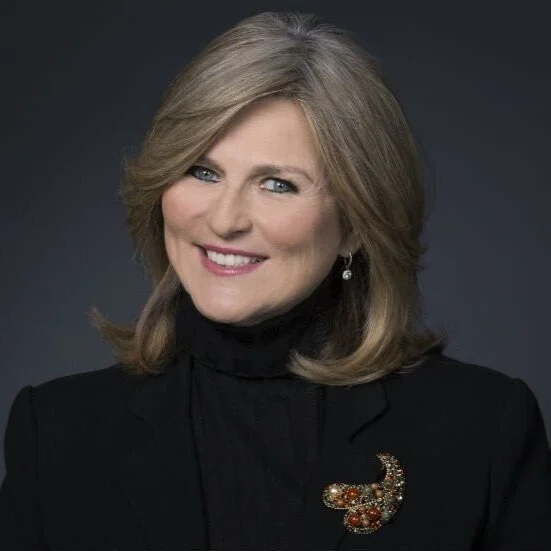Recap: Final Presidential Debate Panel
In keeping with the theme and general ethos of 2020, we had a few last-minute changes. Fortunately, the inimitable author, strategist and pollster Doug Schoen stepped in, along with the razor-sharp election whisperer, Rachel Bitecofer, as well as the brilliant, Emmy award-winning journalist, Cynthia McFadden, as moderator. And we’re lucky they did, as there’s plenty to unpack from the final (*phew*) presidential debate.
McFadden: Forget the formalities - Was there a winner?
Schoen contends that while Trump showed some much-needed discipline and restraint, ultimately Biden did what he needed to do and simply “held up.” And although the race might tighten a bit, the fundamental dynamics of the race won’t significantly change. Trump did the best he could given the facts on the ground, specifically the negative fallout of the pandemic. Ultimately, the candidates mostly spoke to their respective base, with Biden reaching out a bit to all Americans, but, notably, as a proud Democrat. With 45 million votes already, many experts are predicting record turnout for this election. Contrary to popular belief, however, Doug doesn’t see evidence that more turnout will invariably benefit Dems; and while Biden still has a clear advantage, swing states are closer than the overall popular vote.
Rachel, on the hand, said there probably wasn’t a winner of last night’s debate, just a loser - the American people. That was right before she soberly reminded us that our democracy is off the rails, that our president lies constantly and about important things, and that this enormous departure from American presidential history and norms has proven challenging for the media to cover in the face of the need for journalistic impartiality. While Trump was the consensus loser from the first debate, Rachel notes that this debate was mostly unnoteworthy. Partisans saw what they wanted to see – either a Trump win or a Biden win. Therefore, pure independents should be asked, but Rachel asserts they mostly don’t exist.
Are there still Undecided voters? (very few) What about Independent voters? (not really)
According to Doug, at this point in the race, Undecided Voters are low-information voters who feel alienated by the current system. They represent about 6% or 7% of voters.
Rachel argues that, based on her research, Independents aren’t actually independent. Actually, they almost always “lean” one way or the other (just like us, except they’re not political junkies). Moreover, Independents often are just as settled as partisans, they’re just more embarrassed about their partisanship.
Warning: Entering THE WEEDS
Rachel describes a theory that postulates: In our polarized era, Independents have an anti-status quo bias, meaning that the status quo always sucks for these voters. Therefore, they’re likely to break away from the current status quo. In this case, that would mean Independents will break in favor of the Democrats. In fact, per Rachel, the pandemic is likely to enhance the traditional 55%/44% vote for change by Independents.
Check Out Rachel’s article https://newrepublic.com/article/156402/hate-ballot
Cynthia brings up voter Trust, citing “Democracy is like Tinkerbell; once you stop believing she dies.”
Both Doug and Rachel are worried about the integrity of election and health of our democracy; however, they diverge slightly on the causes. While Doug focused on foreign interference in our election; Rachel emphasizes the institutional erosion - in the Senate, in the lack of government accountability and responsiveness, and in Trump’s open warfare on the election itself.
By the way, this warfare isn’t just Trump being Trump. Rachel also voiced concern about RNC and DOJ coordination. She paints the scenario whereby the conservative media machine declares Trump ahead on election day voting - knowing that Dems are more likely to vote by mail, Republicans in person - and then they launch a bevy of lawsuits to discredit mail-in votes that have yet to be counted.
Additional Thoughts from our Panel
Flash point? Biden’s comments on oil - specifically that we should transition away from it - could provide Trump with an opening to highlight the radical approach of The Green New Deal and Biden’s perceived equivocation on fracking.
Audience Question: Will it hurt Biden in PA?
Doug said Trump should wield that comment in a hyper-targeted way in Pennsylvania.
Rachel said those comments are more important in Texas, whose economy is more reliant on oil.
Biden has already walked it back and pivoted to ending subsidies for oil, which makes more political and practical sense. Although Trump has footage and will use it.
Switching to forecasting for Congressional Races
Rachel has the following states flipping Senate races to Dems: Arizona to Mark Kelly, Colorado to John Hickenlooper, Maine to Sarah Gideon, North Carolina probably to Cal Cunningham (very close, but early African American turnout is high).
There are tantalizing possible Tossups for Dems: Iowa to Theresa Greenfield, Alaska to Al Gross, South Carolina to Jaime Harrison, Kansas to Barbara Bollier.
But not Kentucky – White, low college-educated electorate
RE: Trump’s claim that Rs take the house – Trumps makes a lot of stuff up. No evidence, but hasn’t stopped him before. He’s just trying to keep people optimistic.
Rachel said just as there are best practices with pandemic response, there are best practices for electioneering – Base mobilizing being one of them, and usually every nominee comes out of the primary and repositions toward the center in the general election campaign.
However, Trump does things that are antithetical to winning elections:
Trump is still running a base strategy – worked last time, but it frustrates his handlers that they can’t get him to change course. He did tone down his temperament.
Final points: Rachel’s Minimal Effects Theory – Presidential campaigns don’t have a lot of room to influence voters in a hyper-partisan political landscape.
Trump has tamped down his voter erosion, but his first debate performance hurt the Senate Republicans. Trump is is seen as bad on race, empathy, police violence – not serious, empathetic voice. He’s adding to the criminality myth of black male. However, he has a bolder, better argument than Criminal Justice Reform – letting them out of prison. It’s a challenge for Trump as an incumbent to label Biden as the insider.
Rachel makes this point clear - Republicans are great at messaging, Dems struggle – they too often speak to the head, not the gut.
WATCH:
Rachel Bitecofer
A true election whisperer, Dr. Bitecofer received national acclaim for her prediction of the results of the 2018 United States midterm elections more closely than most other forecasters. She has continuously helped to predict and analyze elections and data making her one of the most sought after political scientists in the country.
She continuously appears on tv, including CNN, MSNCB, along with media outlets like NYT, NPR and the Washington Post.
Dr. Bitecofer is famous for her main thesis that modern elections are not decided by the swing vote, but rather negative partisanship, which prioritizes defeating the other side over any specific policy objective. Under her theory, shifts in voter turnout decide everything, and the "swing" mainly comes from whether voters decide to vote at all rather than deciding who to vote for.
Doug Schoen has been one of the most influential Democratic campaign consultants for over thirty years. A founding partner and principal strategist for Penn, Schoen & Berland, he is widely recognized as one of the co-inventors of overnight polling.
Schoen was named Pollster of the Year in 1996 by the American Association of Political Consultants for his contributions to the President Bill Clinton reelection campaign.
His political clients include New York City Mayor Michael Bloomberg and Indiana Governor Evan Bayh, and his corporate clients include AOL Time Warner, Procter & Gamble and AT&T. Internationally, he has worked for the heads of states of over 15 countries, including British Prime Minister Tony Blair, Italian Prime Minister Silvio Berlusconi, and three Israeli Prime Ministers.
He is the author of multiple books, most recently publishing, The End of Democracy. He is a regular contributor to the Wall Street Journal, the Washington Post and various other newspaper and online publications. He is also a Fox News Contributor, making appearances on various news programs several times a week.
Cynthia McFadden was named co-anchor of ABC News' "Nightline" in October 2005. She joined ABC News in February 1994 as the network's legal correspondent. Two years later she was named a correspondent for "PrimeTime," and was made a co-anchor of the broadcast in 2004.
McFadden took an exclusive and rare look inside the new Ku Klux Klan and covered the tragic school shooting in Newtown, Conn. She has reported extensively from Africa and India on the HIV-AIDS pandemic; from China on the environmental costs of that country's rapid economic growth; and on the illegal sale of women and young girls into sexual slavery. Her investigation into horrific human rights abuses in several Mexican mental hospitals led to a major overhaul of that government's institutions for the mentally ill.
McFadden led the first investigation by a major news organization into one of America's darkest secrets, the forced sterilization of 60,000 to 100,000 American citizens; tracked five accused murderers to their hiding places in El Salvador, where she interviewed two of them; and investigated the use of female contraceptives to treat convicted rapists.
She left ABC in 2014 and is currently the senior legal and investigative correspondent for NBC News. She has won a Peabody and an Emmy, along with countless other awards.






